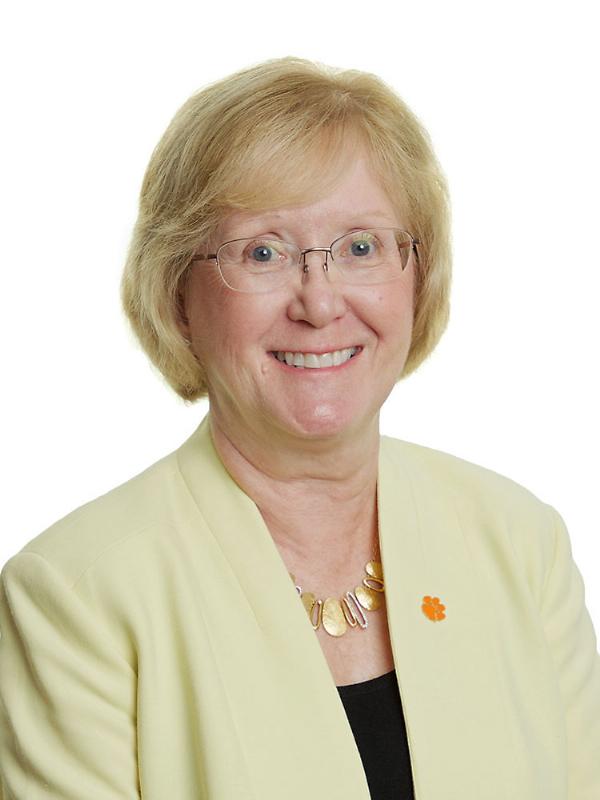Faculty Scholars

Trudy Mackay, Ph.D.
Self Family Endowed Chair of Human Genetics
Director, Clemson University Center for Human Genetics
Professor, Department of Genetics and Biochemistry
College of Science
tmackay@clemson.edu | 864-889-0522
About
Trudy Frances Charlene Mackay is originally from Canada, and received her B.Sc. with first class honours and M.Sc. from Dalhousie University in Halifax, Nova Scotia, Canada, and her Ph.D. from the University of Edinburgh in Edinburgh, Scotland. She was a lecturer in quantitative genetics at the University of Edinburgh for seven years, after which she moved in 1987 to the Department of Genetics (which became the Department of Biological Sciences in 2013) at North Carolina State University. She moved to Clemson University in 2018, where she is the Director of the Center for Human Genetics, the Self Family Endowed Chair of Human Genetics and Professor of Genetics and Biochemistry. Mackay’s laboratory focuses on understanding the genetic and environmental factors affecting variation in quantitative traits, using Drosophila as a translational model system. She has 287 publications, and her work has been continually supported by the National Institutes of Health since 1988. While at North Carolina State University she received the Alumni Distinguished Research Award twice, the O. Max Gardner Award from the University of North Carolina, the North Carolina Award for Science, and the Alexander Quarles Holladay Medal for Excellence. She was awarded an Honoris Causa from the University of Buenos Aires, Argentina. She is a Fellow of American Academy of Arts and Sciences and the Royal Society of London, a member of the US National Academy of Sciences, National Academy of Medicine and the American Philosophical Society, a Laureate Distinguished Fellow of the International Engineering and Technology Institute, the 2016 Wolf Prize Laureate for Agriculture and the 2018 Dawson Prize recipient, Trinity College, Dublin.
Visit Dr. Mackay's Faculty Profile.
How their research is transforming health care
Mackay’s laboratory, in collaboration with Robert R. H. Anholt, seeks to identify the genetic loci at which segregating and mutational variation occurs for quantitative traits, allelic effects and environmental sensitivities, and the causal molecular variants. Her research utilizes mutagenesis to identify candidate genes and pathways, quantitative trait locus mapping of alleles segregating in nature, and systems genetics analyses to provide biological context and identify transcriptional and genetic networks affecting complex traits. Her laboratory derived the Drosophila melanogaster Genetic Reference Panel (DGRP), a community resource of inbred lines with full genome sequences. The DGRP has been used worldwide to understand the relationship between naturally occurring molecular variants and variation in genome wide gene expression and other intermediate molecular phenotypes, and organismal complex traits.
Her work has shown that the genetic architecture of quantitative traits is highly polygenic, and that alleles have sex-, environment- and genetic background-specific effects. Currently, her laboratory is using the DGRP in conjunction with advanced gene editing techniques to model human diseases and assess the impact of variants at the single cell level. Research foci include mapping modifiers of genes causing rare human diseases, and the genetic basis of lifespan and healthspan extension, and sensitivity and resistance to ethanol, cocaine, and toxic chemicals. Her laboratory is also performing whole genome short and long read sequencing on trios of patients with rare undiagnosed diseases and their parents to develop possible diagnosis, in collaboration with the Greenwood Genetic Center. All of these data sets require computationally intensive analyses.
News and media related to their research
- Clemson World - Little Flies, Large Discoveries
- Clemson News - Trudy Mackay becomes first Clemson member of the American Philosophical Society
- Clemson News - Clemson joins Precision Toxicology consortium, aims to protect human health from effects of harmful chemicals
- Clemson News - Funding positions Center for Human Genetics, Greenwood Genetic Center collaboration as a global leader in the scientific advancement of human genetics
- Clemson News - Clemson geneticists identify small molecules that are potential indicators for disease
- Clemson News - Clemson geneticists zeroing in on genes affecting life span
Health Research Expertise Keywords
Faculty Scholar, Quantitative genetics, genetics of common and rare disease, genomics, systems genetics, model organisms, comparative genetics, behavioral genetics, toxicogenomics
